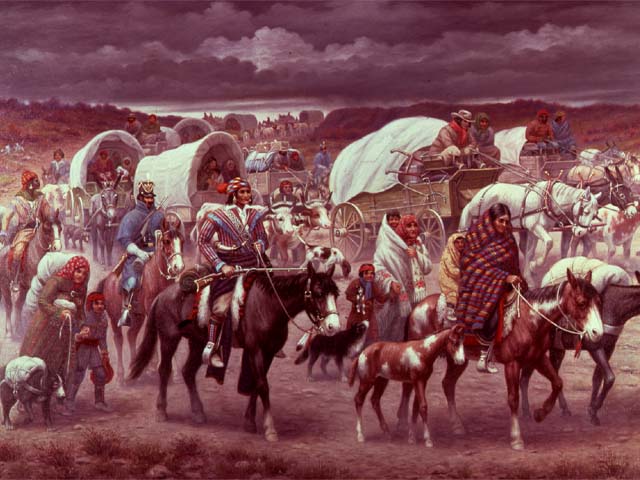Updated in May 2019
In April 2016, former Treasury Secretary Jack Lew publicly announced the Obama administration’s plan to add Harriet Tubman on the $20 bill. She was originally meant to replace Alexander Hamilton on the $10 bill, but public outcry (no doubt including from some hardcore fans of the musical) suggested that a different U.S. historical figure should be taken out of circulation instead.
The plan to honor Tubman on the $20 bill has been in flux since Steve Mnuchin became treasury secretary. However, at the beginning of 2018, Mnuchin said the Trump administration had made no decision on whether or not to switch Andrew Jackson to Harriet Tubman on the $20 bill.
Indeed, a spokesperson for the Treasury Department confirmed in March 2019 that Mnuchin’s position “remained the same.”
Tubman on Lady Liberty Coin
In more positive news, the U.S. Mint in January 2017 released a gold commemorative coin to mark the 225th anniversary of the start of the Mint’s coin production – and it features Lady Liberty as a black woman.
More Stories: Why the hat pin panic never really ended
The coin is part of a set of commemorative coins that will be released every two years. In a statement released Jan. 12, the Mint says future gold coins will depict an “allegorical Liberty in a variety of contemporary forms,” including portraying her as Latina, Indian and Asian.
The New York Times reports that Rhett Jeppson, principal deputy director of the Mint, said the decision to show Lady Liberty as a range of minorities came in part to “have a conversation about liberty.”
WHY THIS MATTERS
Historically, women have been excluded from representation on American currency (and essentially all facets or American public life, but I digress). Remember the controversy that followed the announcement last April that Harriet Tubman would replace Andrew Jackson on the $20 bill? That may not be totally resolved yet.
Fortune Magazine reported in April 2016 that then-Republican frontrunner Donald Trump wasn’t entirely thrilled about the prospect of Tubman replacing Jackson on the $20 bill, calling it “purely political correctness.”
History sidenote
This is a friendly reminder that this country’s seventh president was an actual monster. In addition to owning hundreds of slaves to work on the Hermitage plantation, what Andrew Jackson is most famous for is adopting policies that made the horrific Trail of Tears possible.
For those of us who need a history refresher, the Trail of Tears was a result of Jackson’s Indian Removal Act, which forced the march of 15,000 Cherokee from their homes east of the Mississippi River to present-day Oklahoma in 1838.
4,000 people died as a result of starvation, exposure, disease and exhaustion.

“The Trail of Tears” by Robert Lindneux (The Granger Collection, New York)
This isn’t the first time some groups have tried to sanitize and even erase this piece of American history from the national consciousness.
This painting by Robert Lindneux was completed in 1942. Wondering why there are no paintings of the march from the 1800s, when it actually happened? That’s because none of the pieces survived long enough for us to preserve them.
The above painting is one of the few remaining pieces marking that humanitarian crisis.
Jackson deserves to be known for these atrocities, and should not be honored on the $20 bill. On the other hand, his soon-to-be replacement, Harriet Tubman, saved more than 300 people from their enslavement over a 10-year span and she “never lost a single passenger.”
WHY THIS MATTERS
The U.S., like most other countries, has a history of trying to sanitize the past, especially when it comes to ethnic, racial or gender-based oppression.
Circling back to Trump, he said last April that the decision to remove Jackson from U.S. currency is “purely political correctness,” and that, overall, “Andrew Jackson had a great history, and I think it’s very rough when you take someone off the bill.”
You know what else was rough for a few people way back when?
THE TRAIL OF TEARS
Sidenote: Political correctness has become a dirty phrase in recent years and it’s time to take a look at its original definition.
To correct something is to make it right and accurate and truthful. This is not a bad thing to do. Honoring an American hero, who’s both a former slave and a woman, and who overcame countless obstacles to offer slaves safe passage to freedom is to make some small consolation for the injustices those groups have faced since this country began.
Tactics taken to silence and marginalize diverse voices will become more common as Trump assumes control of the country. His ability to shrug off adversity, confrontation and flat-out falsehoods isn’t going to go away when he learns the nuclear codes.
In this instance, Trump is white-washing history, erasing the plights and cruelties faced by Native Americans at the hands of the government when he suggests that taking Jackson off the bill would be an extreme position.
Keeping a man who is to blame for the deaths of thousands of people on our currency is extreme. Especially when his replacement is legitimately an American hero.
Just for fun, can we make it a rule that every time Trump says something is “great,” we all take a second look? Because calling something “great,” and then immediately dropping the subject without explaining what specifically is so wonderful is kind of giving the middle finger to the rest of us.
“Great” means absolutely nothing in Trump-text and he’s used it countless times to slither out of even the most basic of questions.
Or maybe America just takes a shot every time Trump calls something questionable “great.” I imagine a great number of us would like to be wasted for the four years or so anyways.
WHAT YOU CAN DO
Opposition to Trump’s habit of shutting down critics is going to become increasingly more important in the coming months and years. He has the power to do a lot of things that can fundamentally change this country. But that doesn’t mean he can change the minds of its people.
Trump lost the popular vote. He’s been outnumbered since Day 1. As long as this country remains a democracy, its people have a say in what’s right and what’s wrong.
That being said, Time Magazine reports that the decision to replace Jackson on the $20 bill is ultimately up to the U.S. Treasury Secretary.
After Inauguration Day, that man will be Steven Mnuchin, a former hedge fund manager and Goldman Sachs executive.
Sidenote: The New York Times found that Mnuchin intends to remain in control of a company in charge of his investments. It’s name? Steven T. Mnuchin Inc.
Since Mnuchin isn’t officially treasury secretary yet, so it’s not possible to contact his office through a .gov site yet. And his Twitter account has quite literally one tweet on there, so it doesn’t appear that anything sent to him on that platform will actually be read.
But here’s what you can do: Tweet @realDonaldTrump telling him why Tubman must stay on the $20 bill using the hashtag #TubmanIsMoreThanGreat






0 Comments